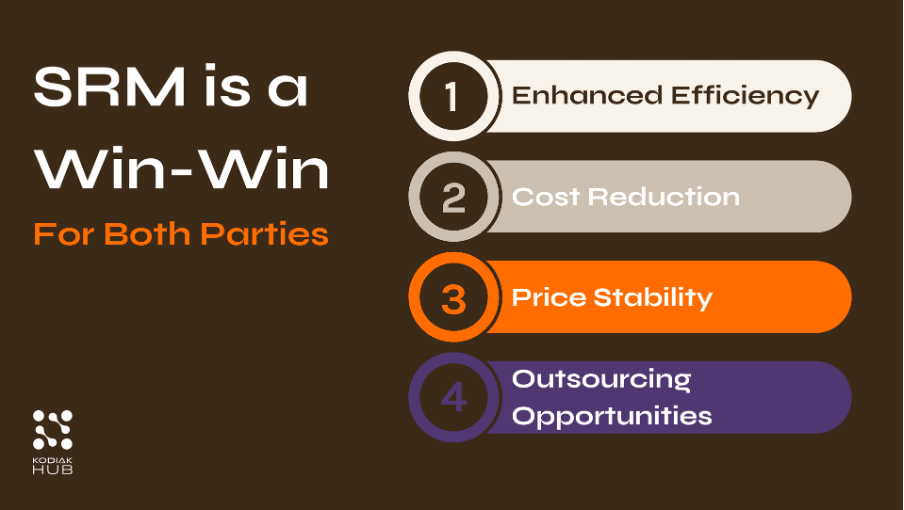CRM for Suppliers? You Probably Need an SRM Platform
If you’re searching for a “CRM for suppliers,” you’re usually trying to fix a set of very specific problems:
-
Supplier data scattered across spreadsheets, email, SharePoint, and ERP vendor master records
-
Slow onboarding and qualification because documents are chased manually
-
No consistent supplier scorecards, audits, or corrective actions
-
Renewals sneak up because contract metadata is missing or not searchable
-
Risk and compliance are reactive, not continuously monitored
A CRM is built to manage customer relationships (pipeline, sales activities, accounts). Supplier management is the mirror image, but the workflows, data, and governance are fundamentally different. That’s why most teams that start by looking for a “supplier CRM” end up implementing Supplier Relationship Management (SRM) software.
In this guide, we’ll break down what overlaps between CRM and SRM, what does not, and why an SRM platform is usually the missing layer between your ERP and the reality of how supplier relationships need to be managed in 2026.
.png?width=1917&height=1085&name=Blog%20Images%20etc%20(5).png)
Supplier CRM: Where CRM and SRM Overlap
It’s true that CRM and SRM share a few basics. Whether you manage customers or suppliers, you need:
Basic information
Contacts, addresses, legal entities, invoicing/tax details, and core company information.
The difference is the “supplier-only” requirements you quickly run into: certifications, onboarding status, audits, risk tiers, and documentation expiry. This is where SRM becomes purpose-built.
Learn more about how an SRM system can empower your team with robust Supplier Information Management.
Agreements and documents
Both CRM and SRM may store documents. But in supplier management, you need contract metadata, renewal timelines, SLAs, and evidence packs in a way that is searchable, auditable, and tied to performance.
Read more about Kodiak Hub’s Contract & Document Management solutions.
Performance checks
Customer-facing CRMs track sales activities. SRM tracks supplier performance: quality, delivery, service levels, audit findings, and corrective actions.
Explore how an SRM system can drive Supplier Quality, Product Compliance, and procurement Improvement Projects.
CRM vs SRM: The fastest way to understand the difference
Here’s the “what belongs where” view procurement leaders use:
|
Capability |
CRM |
SRM |
|---|---|---|
|
Contact and account details |
Strong |
Strong |
|
Sales pipeline and customer engagement |
Core |
Not relevant |
|
Supplier onboarding and qualification |
Not designed for it |
Core |
|
Certifications, evidence, expiry tracking |
Limited/manual |
Core |
|
Supplier risk and compliance workflows |
Limited/manual |
Core |
|
Supplier scorecards (OTIF, PPM, audits) |
Not typical |
Core |
|
Corrective actions (CAPA) and follow-ups |
Not typical |
Core |
|
Contract metadata and renewal workflows |
Not typical |
Core |
|
Cross-functional supplier collaboration |
Limited |
Core |
If your “supplier CRM” project includes qualification, compliance, scorecards, audits, risk signals, and structured supplier development, you are already describing SRM.
Everything to gain: What SRM adds that CRM typically can’t
SRM is not just a database for supplier contacts. It’s the system that operationalizes the supplier lifecycle:
1) Faster onboarding and fewer surprises
SRM turns onboarding into a structured workflow: questionnaires, validations, approvals, and supplier self-service for uploading evidence. It removes the “chase it in email” problem.
Supplier Onboarding & Assessment
2) Proactive compliance and risk management
Many teams only discover missing or expired documentation when something breaks. SRM makes compliance proactive with expiry tracking, reminders, and automated escalations.
The same logic applies to supplier risk: monitoring and re-evaluation should be continuous, especially as supply chain and cyber risks increase. Frameworks like NIST’s supply chain risk management guidance emphasize identifying, assessing, and mitigating risk throughout the supply chain lifecycle, not just at onboarding. (NIST)
3) Measurable supplier performance improvement
SRM connects scorecards, audits, findings, and improvement actions so performance management becomes repeatable, not an ad hoc spreadsheet exercise.
Supplier Performance Management, Supplier Scorecards, Supplier Audit Management.
4) Better cost control and reduced value leakage
A lot of procurement value leakage happens after award: contract compliance, deviations, untracked renewals, and unmanaged changes. McKinsey highlights contract optimization and compliance as major opportunities where procurement can protect value, and AI can accelerate progress. (McKinsey)
5) Cleaner collaboration across teams
SRM gives procurement, quality, operations, and sustainability one shared supplier record. Instead of each function “owning their own spreadsheet,” you get a single source of truth and a common baseline for decisions.
Read more on: Supplier Collaboration & Innovation.

How SRM complements ERP and Source-to-Pay
ERP is essential. It is typically the system of record for purchasing execution: supplier master IDs, purchase orders, goods receipts, invoices, and payments.
But ERP is not optimized for supplier qualification workflows, evidence expiry, audits, CAPAs, and cross-functional supplier performance management.
A modern procurement stack often looks like this:
-
ERP: transactional backbone (POs, receipts, invoices, payments)
-
SRM: supplier lifecycle (onboarding, risk, compliance, performance, audits, collaboration)
-
S2P tools: sourcing events, spend analytics, procurement workflow where applicable
The point is not duplication. The point is clear ownership:
-
ERP holds supplier IDs and transactional truth
-
SRM holds qualification status, risk, evidence, and performance context
-
Together, they give procurement both control and agility
SRM in action: What this looks like in the real world
SRM is easiest to understand when you connect it to real outcomes:
-
A supplier’s certification is due to expire in 30 days. SRM triggers reminders, escalations, and prevents the “we found out by accident” scenario.
-
A supplier’s on-time delivery drops for two consecutive months. SRM scorecards flag the issue, a corrective action is assigned, and the fix is tracked to closure.
-
A contract is nearing renewal. SRM surfaces renewal dates and performance history, so the renewal decision is based on data, not memory.
This is also where AI starts to matter, because structured supplier data and supplier lifecycle events are exactly what GenAI copilots and automated workflows can act on.
Deloitte’s 2025 Global CPO Survey highlights how procurement leaders are increasingly embracing generative AI and investing in talent and technology to manage risk and complexity. (Deloitte)
Read about The 5 Advantages with SRM Software.
FAQ: “CRM for suppliers” and SRM platform questions
Can a CRM be used as a supplier management system?
You can store supplier contacts in a CRM, but once you need onboarding workflows, evidence tracking, compliance, audits, scorecards, and corrective actions, CRM becomes a workaround. That is where SRM fits.
Do I need both an SRM and an ERP?
Most organizations do. ERP runs purchasing execution, while SRM manages supplier qualification, risk, compliance, performance, and collaboration. They complement each other.
What is the fastest SRM win?
For most teams: onboarding plus document and certificate expiry tracking. It immediately reduces manual chasing and audit stress, and it improves data quality across functions.
Bottom line
If your goal is to manage supplier relationships with the same discipline you manage customer relationships, you don’t need a “CRM for suppliers.” You need an SRM platform that is built for supplier onboarding, compliance, risk, performance, and collaboration and that works alongside your ERP.











